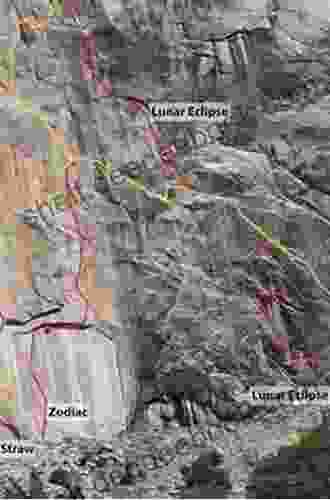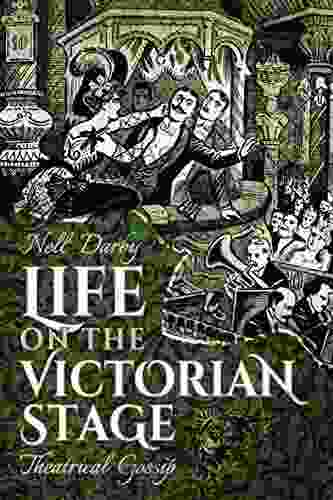Dialectics Analytical Psychology: The El Capitan Canyon Seminar

Dialectics is a philosophical approach that emphasizes the role of contradiction and conflict in the development of ideas and事物. In analytical psychology, dialectics can be used to understand the psyche as a dynamic and ever-changing system.
The key concepts of dialectics are thesis, antithesis, and synthesis.
- Thesis: A thesis is a statement or proposition that is put forward for debate or discussion.
- Antithesis: An antithesis is a statement or proposition that contradicts or opposes the thesis.
- Synthesis: A synthesis is a statement or proposition that reconciles the thesis and antithesis.
The dialectical process is a continual cycle of thesis, antithesis, and synthesis. As new ideas and experiences emerge, they challenge our existing beliefs and assumptions (thesis). This can lead to conflict and tension (antithesis). However, through the process of synthesis, we can integrate the new ideas and experiences into our existing beliefs and assumptions, creating a more comprehensive and nuanced understanding (synthesis).
5 out of 5
| Language | : | English |
| File size | : | 694 KB |
| Text-to-Speech | : | Enabled |
| Screen Reader | : | Supported |
| Enhanced typesetting | : | Enabled |
| Print length | : | 160 pages |
Dr. James Hillman was one of the first analytical psychologists to apply dialectics to the study of the psyche. Hillman believed that the psyche is a dynamic and ever-changing system, and that dialectics could be used to understand the psyche's development and functioning.
In his book "The Dialectic of the Soul," Hillman argues that the psyche is a dialectical system that is constantly in flux. He identifies four main dialectical pairs that are at work in the psyche:
- Consciousness and unconsciousness: The conscious mind is the part of the psyche that is aware of itself and its surroundings. The unconscious mind is the part of the psyche that is not aware of itself and its surroundings. The dialectical relationship between consciousness and unconsciousness is constantly in flux, as we become aware of some aspects of our unconscious mind and unaware of others.
- Self and other: The self is the part of the psyche that is aware of itself as a unique and separate entity. The other is the part of the psyche that is aware of itself as connected to and part of a larger whole. The dialectical relationship between self and other is constantly in flux, as we become more aware of our own individuality and our connectedness to others.
- Good and evil: The good is the part of the psyche that is associated with positive values such as love, compassion, and kindness. The evil is the part of the psyche that is associated with negative values such as hate, violence, and cruelty. The dialectical relationship between good and evil is constantly in flux, as we become more aware of our own capacity for both good and evil.
- Life and death: Life is the part of the psyche that is associated with growth, creativity, and renewal. Death is the part of the psyche that is associated with decay, destruction, and endings. The dialectical relationship between life and death is constantly in flux, as we experience both the joys and sorrows of life and the inevitability of death.
Hillman believed that the dialectical process is essential for the healthy development of the psyche. Through the process of dialectics, we can integrate the different aspects of our psyche into a more coherent and balanced whole.
In 1978, Dr. Hillman led a week-long seminar at the El Capitan Canyon in California. The seminar was dedicated to the study of dialectics and analytical psychology. The seminar was attended by a group of analysts, therapists, and scholars from around the world.
The seminar was a transformative experience for many of the participants. They learned about the dialectical approach to analytical psychology and how it could be used to understand the psyche. They also had the opportunity to experience the dialectical process firsthand, as they engaged in lively and thought-provoking discussions about the nature of the psyche.
The El Capitan Canyon Seminar was a major turning point in the development of dialectics analytical psychology. The seminar helped to spread the word about the dialectical approach to analytical psychology, and it inspired a new generation of analysts and therapists to explore the dialectical process in their own work.
Dialectics analytical psychology is a powerful approach to understanding the psyche. The dialectical process can be used to understand the psyche's development and functioning, and it can also be used to help individuals integrate the different aspects of their psyche into a more coherent and balanced whole.
The El Capitan Canyon Seminar was a major turning point in the development of dialectics analytical psychology. The seminar helped to spread the word about the dialectical approach to analytical psychology, and it inspired a new generation of analysts and therapists to explore the dialectical process in their own work.
5 out of 5
| Language | : | English |
| File size | : | 694 KB |
| Text-to-Speech | : | Enabled |
| Screen Reader | : | Supported |
| Enhanced typesetting | : | Enabled |
| Print length | : | 160 pages |
Do you want to contribute by writing guest posts on this blog?
Please contact us and send us a resume of previous articles that you have written.
 Novel
Novel Page
Page Chapter
Chapter Text
Text Story
Story Reader
Reader Paperback
Paperback E-book
E-book Newspaper
Newspaper Sentence
Sentence Bookmark
Bookmark Glossary
Glossary Bibliography
Bibliography Footnote
Footnote Manuscript
Manuscript Codex
Codex Tome
Tome Bestseller
Bestseller Classics
Classics Memoir
Memoir Encyclopedia
Encyclopedia Dictionary
Dictionary Thesaurus
Thesaurus Character
Character Resolution
Resolution Librarian
Librarian Catalog
Catalog Card Catalog
Card Catalog Borrowing
Borrowing Research
Research Scholarly
Scholarly Lending
Lending Reserve
Reserve Literacy
Literacy Study Group
Study Group Dissertation
Dissertation Awards
Awards Reading List
Reading List Book Club
Book Club Theory
Theory John Fea
John Fea Jack Trout
Jack Trout Jonathan Sayer
Jonathan Sayer Becky Wolff
Becky Wolff Monica Grace
Monica Grace Enriqueta Zafra
Enriqueta Zafra Paulo Cezar Da Rosa
Paulo Cezar Da Rosa Kate Wiltshire
Kate Wiltshire Joseph Pearson
Joseph Pearson Jacob Abbott
Jacob Abbott Stephen Dinan
Stephen Dinan Geza Szurovy
Geza Szurovy John Bew
John Bew Frank M Staemmler
Frank M Staemmler Rosanne Parry
Rosanne Parry Virtuous Nyamesem Cornwall
Virtuous Nyamesem Cornwall Kimberly Readnour
Kimberly Readnour Larry The O
Larry The O Christa Klickermann
Christa Klickermann Trisch Price
Trisch Price
Light bulbAdvertise smarter! Our strategic ad space ensures maximum exposure. Reserve your spot today!
 Everett BellFollow ·15.2k
Everett BellFollow ·15.2k Richard AdamsFollow ·5.8k
Richard AdamsFollow ·5.8k Amir SimmonsFollow ·9.7k
Amir SimmonsFollow ·9.7k Derrick HughesFollow ·4.6k
Derrick HughesFollow ·4.6k Donald WardFollow ·10k
Donald WardFollow ·10k Yukio MishimaFollow ·19.5k
Yukio MishimaFollow ·19.5k Deion SimmonsFollow ·6.7k
Deion SimmonsFollow ·6.7k Harvey HughesFollow ·19.7k
Harvey HughesFollow ·19.7k

 Beau Carter
Beau CarterLater Political Writings: A Window into the Evolution of...
Political thought, like...

 Tyrone Powell
Tyrone PowellThe Essential Guide to Family School Partnerships:...
: The Importance of...
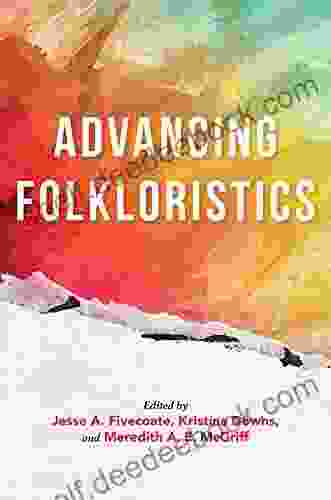
 Christian Barnes
Christian BarnesAdvancing Folkloristics: Conversations with Jesse...
Dr. Jesse Fivecoate is an...

 Jake Carter
Jake CarterHal Leonard DJ Method Connell Barrett: A Comprehensive...
Are you ready...
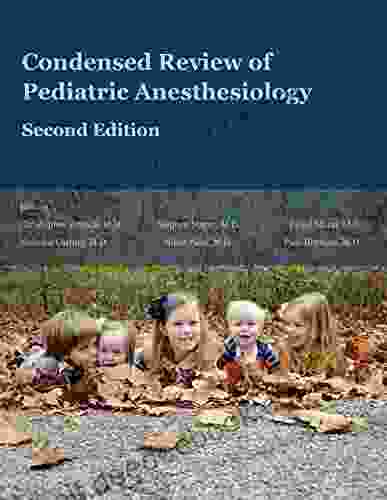
 John Updike
John UpdikeCondensed Review of Pediatric Anesthesiology Second...
Condensed Review of...
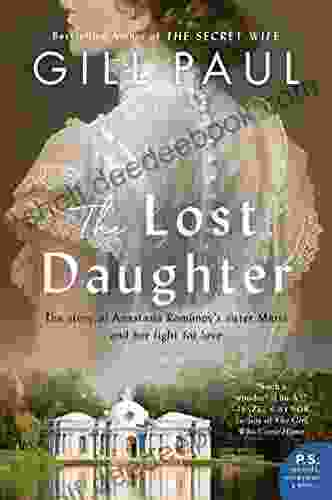
 Guillermo Blair
Guillermo BlairExploring the Complexities of Motherhood and Identity: A...
Elena Ferrante's "The Lost...
5 out of 5
| Language | : | English |
| File size | : | 694 KB |
| Text-to-Speech | : | Enabled |
| Screen Reader | : | Supported |
| Enhanced typesetting | : | Enabled |
| Print length | : | 160 pages |


